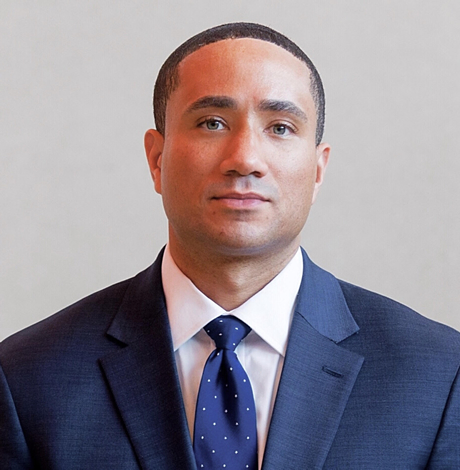Living
Maryland Senate kills trans rights bill
More disappointment for activists; Miller blamed for failures


Sen. Brian Frosh (D-Montgomery County), a supporter of the trans rights bill, disagreed with those who accuse Senate President Mike Miller of orchestrating the measure's defeat. (Blade photo by Michael Key)
A gay member of the Maryland State Senate issued a strongly worded statement criticizing his colleagues for voting 27-20 on Monday to send a transgender non-discrimination bill back to committee, an action that killed the bill for the year.
Sen. Richard Madaleno (D-Montgomery County), one of the lead sponsors and longtime supporters of the Gender Identity Non-Discrimination Act, known as HB 235, joined LGBT activists in expressing outrage over the Senate’s action.
“Every homeless transgender person that dies on the street will do so because of the Senate’s failure to pass HB 235,” Madaleno said in a statement released late Monday.
“Every transgender individual who cannot provide for themselves or their family because they are denied employment based on their gender identity will do so because of the Senate’s failure to pass HB 235,” he said.
The bill, which calls for banning discrimination against transgender people in the areas of employment, housing and credit, including bank loans, had been approved last month in the state’s House of Delegates by a vote of 86 to 52.
Initial head counts of senators led supporters to believe they had the votes to pass the measure in the Senate. But activists working with the statewide LGBT group Equality Maryland said that, to their great disappointment and surprise, as many as seven Democrats backed off from earlier commitments to vote for the bill.
Of the 27 senators voting to send the bill back to committee, 16 were Democrats and 11 were Republicans. Democrats hold a 35 to 12 majority in the Senate.
Of the 20 voting against the motion to send the bill to committee, 19 were Democrats. Just one Republican, LGBT rights supporter Allan Kittleman of Howard and Carroll Counties, voted against the motion to send the bill back to committee.
“Of the ones that voted to recommit, there were at least seven that we felt had committed to us that they were going to support this and then they backed out,” said Dana Beyer, a Montgomery County transgender activist and former House of Delegates candidate who worked closely with Equality Maryland to lobby for the bill.
“It’s always a guess,” said Beyer, when asked why supporters turned against the bill. “It’s shocking because we didn’t expect this. There are a thousand ways to kill a bill. This is one way to do it and I have to lay it at the hands of the Senate leadership.”
Beyer and others familiar with the bill said they believe Senate President Thomas V. Mike Miller (D-Prince George’s and Calvert Counties), orchestrated the bill’s demise.
Miller was among the senators who voted for the motion to recommit the bill to the Senate Judicial Proceedings Committee, which voted 7-4 one day earlier to approve the bill and send it to the Senate floor.
Miller did not return a call seeking comment as of press time on Wednesday.
Sen. Brian Frosh (D-Montgomery County), chair of the Judicial Proceedings Committee and a supporter of the bill who voted against sending it back to committee, disagreed with those who blame Miller for killing the bill.
“I’m sorry that it lost,” Frosh told the Blade in an interview Tuesday. “But I think the president said a week ago publicly, and he had been saying all session, that there aren’t the votes on the Senate floor to pass it. And he was right.”
Added Frosh: “There were 20 votes for the bill. You need 24. And it’s a shame, but it’s a fact of life.”
According to Frosh, Equality Maryland has repeatedly miscalculated the vote count on the Gender Identity Non-Discrimination Act this year and in previous years, when the bill died in committee.
Frosh said he is doubtful that supporters would be able to line up the four votes they need to pass the bill next year.
Beyer disputes Frosh’s assessment, saying that Equality Maryland and others obtained clear commitments from senators who voted to send the transgender bill back to committee on Monday.
“It wasn’t just Equality Maryland that was doing the vote count,” she said. “There was a coalition of people that had personal relationships with various senators who got commitments from those senators.”
Miller, for reasons not fully understood by the bill’s supporters, “twisted arms” to get Democratic senators supportive of the bill to vote for the motion to recommit to committee, Beyer said. She said she and others associated with Equality Maryland confirmed this from reliable sources close to the Senate that she declined to identify due to promises of confidentiality.
Miller became the target of an aggressive campaign by Equality Maryland and a coalition of transgender activists and allies organized by Beyer after he diverted the bill to the Senate Rules Committee following its approval by the House of Delegates.
The Rules Committee has long been viewed as a “graveyard” for bills out of favor with the Senate leadership. Activists backing the bill viewed Miller’s decision to single out the transgender bill for diversion to the Rules Committee while clearing dozens of other bills for the normal route to standing committees as an attempt to kill the bill.
But in a development that Annapolis political observers viewed as rare, Miller backed down amid a barrage of e-mails and phone calls to his office and to the offices of other senators demanding that the bill be released to the Judicial Proceedings Committee for a vote.
The Judicial Proceedings panel voted April 8, following a 90-minute debate, to approve the bill and send it to the Senate floor. The committee’s action led supporters to believe they had a fighting chance to see it through a full Senate vote.
Morgan Meneses-Sheets, Equality Maryland’s executive director, said she was especially disappointed that several senators that voted to recommit the bill to committee on Monday had assured the group of their support for the measure.
“I wish I had a why,” she said. “This means that we really need to examine our steps moving forward. But I must emphasize that we got so far this year,” she added, noting that the bill was killed in committee for the past four years without ever reaching the floor of the Senate or House.
“We are thankful to every legislator who did do the right thing,” she said. “We are so thankful to every constituent who wrote a letter and made a phone call, and especially to the transgender people of Maryland who came out and told their stories, who shared their very personal need for job and housing protections.”
“We will continue to fight every day. We will continue to analyze how we can get these important protections in place. But we are shocked and frankly appalled by this action today,” she added.
The vote by the Senate came on the last day of the Maryland Legislature’s 2011 session and followed less than 15 minutes of debate.
Sen. C. Anthony Muse (D-Prince George’s County) asked whether the bill would have an impact on private citizens seeking to choose a roommate in a private home. Muse also asked whether the bill’s proposed ban on employment discrimination would force the Boy Scouts organization to hire a transgender person or prevent any employer from establishing a dress code.
Sen. Jamie Raskin (D-Montgomery County), one of the lead sponsors and supporters of the bill served as floor manager for what was expected to be a lengthy Senate floor debate. Raskin told Muse the bill would not cover people in private homes looking for roommates.
“If you’re looking for a roommate, you can discriminate on any basis you want,” he said.
Raskin said the bill would cover the Boy Scouts organization for employment purposes, but said a transgender person seeking a job with the Boy Scouts would have to meet all other requirements for the job, including appropriate dress codes. He said the Boy Scouts, like any other employer, could not refuse to hire someone solely because of their status as a transgender person under the bill’s provisions.
Immediately after Muse and Raskin completed their exchange, Sen. James DeGrange (D-Anne Arundel County) offered a motion to recommit the bill to committee.
“I respect the work the committee’s done on this bill,” he said. “I know there’s a huge concern in this body toward this. To that I’d like to move that the bill be re-referred back to committee.”
Raskin and Sen. Catherine Pugh (D-Baltimore City) rose to oppose the motion, urging their colleagues to give supporters a chance to vote on the bill.
“It’s been way whittled down,” said Raskin in describing how the bill’s public accommodations provision was removed by House supporters to ease concerns by lawmakers hesitant to vote for the bill.
“This is just about giving people the right to live someplace and the right to earn a living,” he said.
Miller, presiding over the Senate, then called for a recorded roll-call vote on the motion. When the Senate chamber’s electronic board showed the motion had passed by a 27-20 vote, expressions of shock could be heard in the chamber, especially by supporters seated in the visitors gallery.
The bill’s defeat represented a victory for an odd coalition of opponents.
A faction of transgender activists, led by the group Trans Maryland, called on the Senate to kill the bill because it did not go far enough. The group said a decision to take out a provision protecting transgender persons from public accommodations discrimination – which includes stores, hotels and public bathrooms, among other places – made the bill unacceptable.
The bill’s supporters said they reluctantly agreed to a decision by the bill’s chief sponsor in the House, Del. Joseline Pena-Melnyk (D-Prince George’s and Anne Arundel Counties), to remove a public accommodations provision from the previous year’s version of the bill. Pena-Melnyk said doing so was the only way the measure could have cleared a House committee and have any chance of passing either body.
The anti-LGBT group Maryland Citizens for A Responsible Government led efforts among conservative religious and political groups to oppose the bill on grounds that no transgender civil rights protections should be enacted. The group’s leader, physician Ruth Jacobs, organized telephone and e-mail campaigns targeting lawmakers that vowed to bring the issue up in the next election.
The transgender bill’s defeat followed by a little more than a month the defeat in the Maryland Legislature of a same-sex marriage bill that drew national media coverage. In what some in the LGBT community have viewed as an ironic twist, the marriage bill died after the Senate approved it and the House of Delegates sent it back to committee rather than take a full up or down vote on the measure.
In the case of the marriage bill, a coalition of LGBT groups, including Equality Maryland, favored sending it back to committee after determining they did not have the votes in the House to pass it and it would be better to avoid a losing vote.
Some in the LGBT community disagreed with that decision. But in the case of the transgender bill, nearly all of its supporters, including Equality Maryland, wanted the Senate to vote on the measure.
Beyer said her sources close to the Senate believe it would have passed had Miller and the Senate leadership agreed to allow it to come up for a full vote.
“He twisted enough arms to send it back to committee but he couldn’t get enough people to vote no on the bill itself,” she said. “That’s what we’re being told by people in the know.”
Madeleno could not be immediately reached to determine if he agrees with Beyer’s assessment of Miller’s role in the bill’s defeat.
But Annapolis observers believe Madaleno made it clear in the strongly worded statement he released on Monday that he was angry at Miller, even though he did not mention the Senate president by name.
“I am extremely disappointed by the Senate’s action today to send HB 235 back to the Judicial Proceedings Committee,” Madaleno said in the statement.
“The twisted and unfair process HB 235 had to go through to even make it to the Senate floor mars the Senate’s otherwise outstanding work this year,” he said. “The Senate’s treatment of this legislation will be remembered for a long time by the LGBT community and Marylanders who believe in equal rights for all.”
Madaleno said he plans to introduce a new version of the bill next year that will include a public accommodations provision.
Real Estate
Navigating DMV real estate market during political unrest
Reductions in federal employment have introduced uncertainties

The Washington, D.C.-Maryland-Virginia (DMV) region has long been recognized for its robust housing market, underpinned by the presence of the federal government and a diverse economic landscape. Recent massive reductions in federal employment have introduced uncertainties, yet the area continues to offer compelling reasons for prospective homebuyers, particularly within diverse communities.
While the federal government has traditionally been a significant employer in the DMV, the region has proactively diversified its economic base. Sectors such as technology, professional services, education, and healthcare have expanded, mitigating the impact of federal job cuts. This diversification fosters some economic resilience, which offers our area a semblance of protection against the impending unknowns that we currently face. Nothing can shield real estate entirely; however, our area tends to survive these types of changes better than other parts of the country.
Despite concerns over federal layoffs, the DMV housing market has demonstrated notable stability. Analyses indicate that the number of active listings, sold properties, and median sales prices have remained steady on a year-over-year basis. This steadiness suggests that the market is adapting to changes without significant disruption.
Furthermore, while there has been a slight increase in home listings, this trend aligns with typical seasonal variations and does not solely reflect federal employment changes. The luxury property segment, in particular, continues to thrive, indicating sustained interest and investment in the region.
The DMV region is renowned for its cultural and demographic diversity, with areas like Montgomery County, Md., being among the most ethnically diverse in the nation. This inclusivity extends to various communities, including LGBTQ individuals, fostering a welcoming environment that enhances the area’s appeal. Even though the current administration is fostering anti-diversity ideology, I remain confident that our LGBTQ community will continue to thrive even as these destructive forces work against us.
Local governments within the DMV have implemented policies aimed at promoting affordable housing and preventing displacement, particularly in the wake of economic shifts. Initiatives like the Douglass Community Land Trust in Washington, D.C., exemplify efforts to maintain housing affordability and support community stability.
Additionally, jurisdictions such as Montgomery County have longstanding Moderately Priced Dwelling Unit (MPDU) programs that require developers to include affordable housing in new residential developments. These policies contribute to socioeconomically mixed neighborhoods, benefiting diverse populations.
Despite Elon Musk’s brandishing of a chainsaw to the federal workforce, our real estate market continues to thrive. The DMV region maintains its appeal. Economic diversification, market stability, commitment to diversity and inclusion, and progressive housing policies collectively contribute to an environment that supports and attracts diverse communities. Prospective homebuyers can find reassurance in the region’s resilience and ongoing efforts to foster an inclusive and vibrant community. These are only a few among the many reasons to have a positive outlook while considering real estate options in our area.
It is important to consider working with brokerages, brokers, agents, lenders and title companies who align with our community and our objectives. Not all LGBTQ agents work for brokerages that support or understand the needs of the members of our community. Do your research and find out who has donated money to what political causes. Now more than ever we must support members of our community to protect our way of life and our very existence.
Stacey Williams-Zeiger is president/principal broker of Zeiger Realty Inc. Reach her at [email protected].

Hi Michael,
When I came to D.C. for college and came out, I was idealistic about finding true love. I made gay friends at school and watched them hooking up all the time.
It seemed like the opposite of what I wanted. I dreamed of meeting “Prince Charming” and living happily ever after. I thought I would put off sex until I met my special guy.
This went on for a while until I got too horny and impatient to keep putting off sex. The boyfriend wasn’t materializing so I went online and hooked up. Actually it was a lot of fun.
Soon I was hooking up as much as any of my friends were. I kept hoping I’d still find my prince. But over time most of my energy shifted to finding guys to have sex with.
Now I’m 34. I’ve been at this a long time and I realized the other day that I don’t like my life.
I haven’t been on a real date in years but I’m hooking up multiple times a week. I’ve been with almost everyone I see on the apps whom I find attractive (where the feeling was mutual). And yes, I’ve been with a lot whom I didn’t find attractive because I was horny.
I look at myself and I think, yuk. I don’t like whom I’ve become.
I feel like I am addicted to hooking up. I just keep craving something. The release but mostly the attention, that the other person finds me hot. After I come, I feel like the whole thing was pointless, and a little disgusted with myself. Advice?
Michael replies:
You’re using hookups not just for sex, but as a way to feel good about yourself by getting positive attention from others.
But other-validation is like junk food, a sugary snack that staves off hunger for a few minutes and never really fills you up. All those guys you hook up with? The attention feels great, but as you wrote, that feeling lasts until your orgasm. And then you’re back to chasing it.
As with junk food, the other-validation you get when you hook up is a lot of empty calories. Having someone you don’t even know agree to have sex with you says nothing meaningful about your worth or even your attractiveness.
Yet another problem: If you believe that you need other-validation, you will do all sorts of self-damaging behaviors to get it—such as hookups that leave you feeling empty and disgusted. I’ve seen many people lose their self-respect in the service of getting other people’s positive attention through behaviors that violate their own integrity. Doing things that make you feel bad about yourself in an attempt to feel good about yourself is ironic, and sad.
The bottom line is that other people can’t “make” you feel good about yourself. They might give you a small temporary boost, but your self-esteem actually has to come from you. That’s why it’s called self-esteem. Once you are past a certain age, if you don’t believe that you have value, no one else can get you there. You have to validate yourself.
Let’s go big-picture for a moment: It is our parents’ job to teach us that we have value when we are little, and when that doesn’t happen, we often struggle with self-esteem throughout our lives, unless we can find a path to develop our own belief in our worth. In the meantime, we may chase other-validation in a futile attempt to fill ourselves up.
Other experiences we go through—for example, growing up gay in a hostile environment—can also do a number on how we see ourselves, and leave us grasping for affirmation from others. It takes work to get through and get past the impact of these experiences.
So how do you get better at giving yourself the validation you are seeking? There’s a great saying from the 12-step programs: If you want to have self-esteem, behave in esteemable ways.
What would it mean for you to behave in a way that you respect? Your letter provides one answer that is true for you: Stop engaging in sexual encounters that leave you disliking yourself.
Far easier said than done, right? But that doesn’t mean it’s impossible. Having gotten clarity that you don’t like the life you’ve constructed for yourself, now you actually can do something about it. Keep in mind, though, that you will face some challenges if you stop hooking up.
First: You may find it isolating and scary to stop doing something that all or most of your friends are doing. You will have to reassure yourself that you’re doing what’s right for you; that you are taking good care of yourself by choosing to avoid behaviors that leave you feeling bad; and that it’s OK to be different from “everyone else.” In other words, you are going to have to get much better at self-validation.
If you have some friends who don’t spend a lot of their time hooking up, they may be good supports for you. Some guys find camaraderie from attending a 12-step program like Sexual Compulsives Anonymous (SCA).
Second: People often use hookups (and sex) not just for sexual gratification, but to soothe anxiety, stress, depression, and other uncomfortable feelings. If you stop hooking up, you will likely need some other ways to keep yourself calm and to steady your mood. Exercise and meditation are two obvious means.
You’d be wise to figure out new ways to fill your time that give you a sense of meaning and connection. I can’t tell you what those might be; only you can figure out what is right for you. They might include developing or deepening warm friendships, taking good care of yourself, finding a new activity that interests you — the list can go on and on.
If you still want to find your prince, this is the way to go about it. The cliché is true: You can’t expect anyone to like you unless you like yourself. If you build a life rich in fulfilling pursuits that help you to feel good about who you are and the life you are leading, you will be transforming yourself into relationship material.
Keep in mind, though, that letting yourself get close to someone through a heart connection would mean having to confront all sorts of uncomfortable emotions, including feeling vulnerable, that you have avoided by limiting yourself to crotch attachments.
That said, working to become a more solid person would help you develop the strength to tolerate the ongoing challenges of a close relationship.
Michael Radkowsky, Psy.D. is a licensed psychologist who works with couples and individuals in D.C. He can be found online at michaelradkowsky.com. All identifying information has been changed for reasons of confidentiality. Have a question? Send it to [email protected].

Whether you are upgrading parts of your current home to prepare it for sale or enhancing the home you just purchased, kitchens and bathrooms are still at the top of the renovation list.
Kitchen renovations have always embraced a blend of functionality, personalization, and aesthetic appeal; however, homeowners are currently moving away from sterile, uniform designs, opting instead for spaces that reflect warmth, character, and individual style. Here are some of the most prominent trends shaping kitchen renovations this year.
Warm and Earthy Tones
The dominance of all-white kitchens is waning as homeowners gravitate toward warmer, earth-toned palettes. Shades like sage green, navy blue, and natural wood finishes are becoming popular choices for cabinetry, infusing kitchens with a cozy and inviting atmosphere. This shift reflects a desire for spaces that feel more personalized and less clinical. Flat panel and Shaker cabinets continue to be popular options.
Integration of Organic Modernism
The “modern organic” style is gaining traction, characterized by using natural materials, neutral color palettes, and serene layouts. Incorporating elements like soapstone countertops, Venetian plaster walls, slate floors, and greenery not only enhances aesthetic appeal but can also increase home values significantly. Fully outfitted outdoor kitchens further contribute to this trend.
Innovative Kitchen Island Designs
Kitchen islands continue to be central features, with designs evolving to incorporate textures, wood and tile cladding, multifunctional elements, and bold colors and materials. Integrated seating areas, waterfall countertops, and the use of monolithic stone or stacked marble are becoming increasingly popular. These islands not only serve as functional workspaces but also as striking focal points within the kitchen.
Concealed Kitchens for a Sleek Look
The concept of concealed kitchens is on the rise, emphasizing built-in appliances, flush cabinetry, and appliance garages to maintain a clutter-free environment. This design approach fosters a minimalist aesthetic, creating a seamless flow between the kitchen and adjacent living areas, particularly in open-concept homes.
Personalized Cabinetry and Storage Solutions
Customization is key in modern kitchen designs, with homeowners seeking tailored storage solutions that cater to their specific needs. Features like hidden storage compartments, integrated lighting, and unique hardware choices are being favored over generic, cookie-cutter options. This trend underscores a move toward kitchens that are both functional and reflective of personal style.
Revival of Traditional Styles with Modern Twists
Traditional kitchen styles are making a comeback, with a contemporary twist. Elements such as expanded backsplash coverage, classic tile shapes and patterns, use of mixed metals, and specialty appliances are being integrated into modern kitchens, blending the charm of the past with the conveniences of the present. Custom range hoods, coffee bars and microwave drawers are increasingly added to renovation projects. This fusion creates spaces that are both timeless and equipped for modern living.
Sustainable and Natural Materials
Sustainability remains a priority, with an increased use of eco-friendly materials like reclaimed wood, recycled metals and glass, and energy-efficient appliances. This not only reduces environmental impact but also introduces unique texture and shimmer into kitchen designs, adding depth and character to the space.
Use of Bold Colors and Accents
Homeowners are becoming more adventurous with color and texture, incorporating vibrant hues and tactile materials into their kitchen designs. Features like colorful window trims, two-tone cabinets, and the use of wallpaper and feature walls add visual interest and a personalized touch to the space. In addition to the familiar white, major appliances are now shown in matte black, navy, and jewel tones of red, green, and blue. There are even vinyl wraps and magnet covers that allow for more creativity and individualization with appliances.
Integration of Smart Technology
The incorporation of smart technology continues to grow, with appliances featuring automated cooking functions, sensor reheating, and control locks becoming more prevalent. Induction stoves are entering the mix. Charging stations and touch-activated cabinet doors and faucets are also popular. LED lighting lasts longer and prevents you from having to climb a ladder to change lightbulbs on a high or vaulted ceiling. These advancements enhance convenience and efficiency, aligning with the modern homeowner’s desire for a kitchen that supports a tech-savvy and busy lifestyle.
Multifunctional Spaces
Kitchens are increasingly being designed as multifunctional spaces that accommodate cooking, dining, working, and socializing. This has led to the inclusion of features like integrated seating, versatile lighting, and adaptable layouts that can easily transition between different uses, reflecting the evolving role of the kitchen in contemporary homes. Still, don’t be surprised to see a resurgence of self-contained kitchens with real walls.
So, whether the kitchen you want is sleek and modern, earthy and organic, or traditional and elegant, there will always be fresh new styles, ideas, innovations and classic touches that cater to your lifestyle.
Valerie M. Blake is a licensed Associate Broker in D.C., Maryland, and Virginia with RLAH @properties. Call or text her at 202-246-8602, email her via DCHomeQuest.com, or follow her on Facebook at TheRealst8ofAffairs.
-

 El Salvador4 days ago
El Salvador4 days agoGay Venezuelan makeup artist remains in El Salvador mega prison
-

 State Department3 days ago
State Department3 days agoHIV/AIDS activists protest at State Department, demand full PEPFAR funding restoration
-

 Opinions5 days ago
Opinions5 days agoScience must not be a weapon against trans people
-

 Maryland5 days ago
Maryland5 days agoMd. schools plan to comply with federal DEI demands










